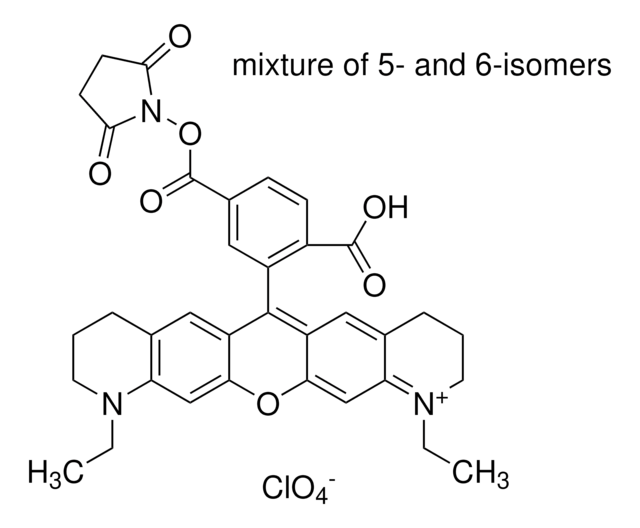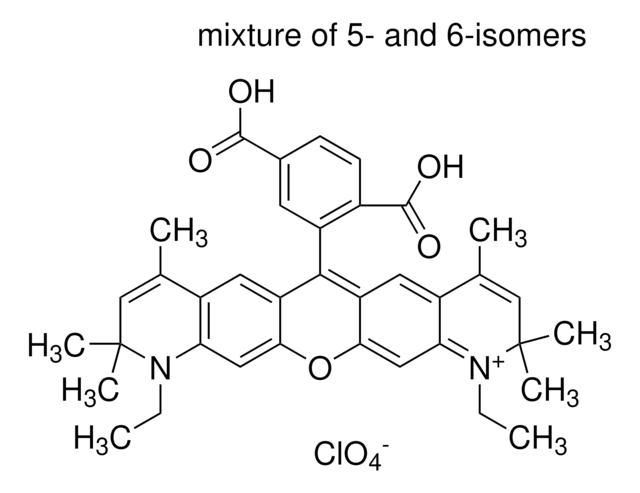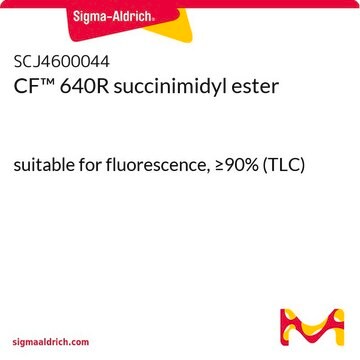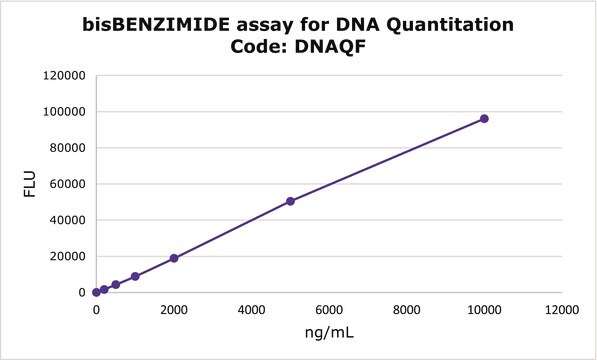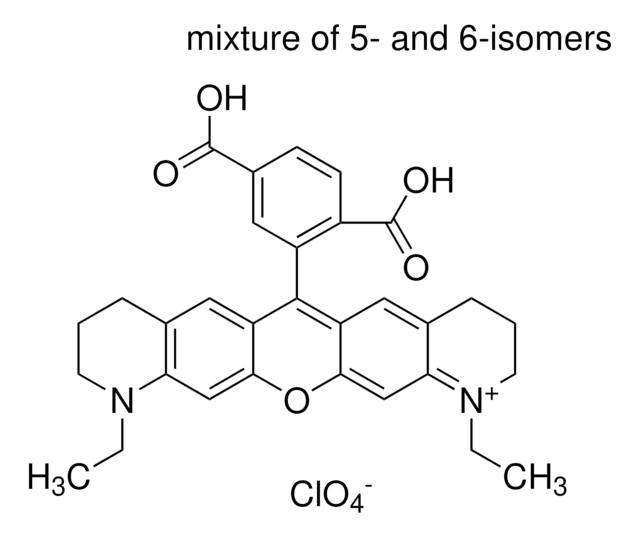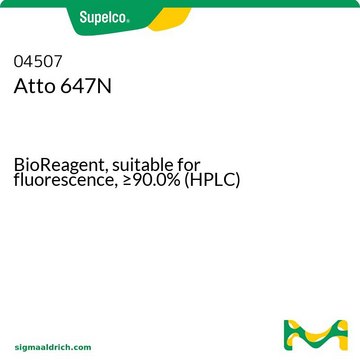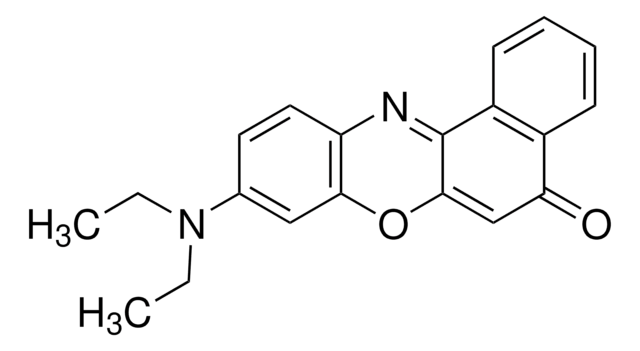06699
Atto 532
BioReagent, suitable for fluorescence, ≥90% (HPCE)
Autenticatiper visualizzare i prezzi riservati alla tua organizzazione & contrattuali
About This Item
Prodotti consigliati
Nome Commerciale
BioReagent
Livello qualitativo
Saggio
≥90% (HPCE)
Produttore/marchio commerciale
ATTO-TEC GmbH
Fluorescenza
λex 533 nm; λem 560 nm in 0.1 M phosphate pH 7.0
Compatibilità
suitable for fluorescence
Temperatura di conservazione
−20°C
Descrizione generale
Atto 532 is a new label with high molecular absorption (115,000) and quantum yield (0.90) as well as sufficient Stoke′s shift between excitation and emission maximum. It is optimized for excitation with frequency doubled Nd:YAG-Laser, and is characterized by high photostability.
Applicazioni
Atto fluorescent labels are designed for high sensitivity applications, including single molecule detection. Atto labels have rigid structures that do not show any cis-trans-isomerization. Thus these labels display exceptional intensity with minimal spectral shift on conjugation.
Atto 532 has been conjugated with the secondary antibodies for STED (stimulated emission depletion) microscopy and immunofluorescence studies.
Atto 532 has been conjugated with the secondary antibodies for STED (stimulated emission depletion) microscopy and immunofluorescence studies.
Note legali
This product is for Research use only. In case of intended commercialization, please contact the IP-holder (ATTO-TEC GmbH, Germany) for licensing.
Non trovi il prodotto giusto?
Prova il nostro Motore di ricerca dei prodotti.
Codice della classe di stoccaggio
11 - Combustible Solids
Classe di pericolosità dell'acqua (WGK)
WGK 3
Punto d’infiammabilità (°F)
Not applicable
Punto d’infiammabilità (°C)
Not applicable
Dispositivi di protezione individuale
Eyeshields, Gloves, type N95 (US)
Scegli una delle versioni più recenti:
Possiedi già questo prodotto?
I documenti relativi ai prodotti acquistati recentemente sono disponibili nell’Archivio dei documenti.
I clienti hanno visto anche
Uffe V Schneider et al.
BMC biotechnology, 10, 4-4 (2010-01-28)
Melting temperature of DNA structures can be determined on the LightCycler using quenching of FAM. This method is very suitable for pH independent melting point (Tm) determination performed at basic or neutral pH, as a high throughput alternative to UV
3D reconstruction of high-resolution STED microscope images.
Punge A et al.
Microscopy Research and Technique, 71, 644-644 (2008)
Evidence for major structural changes in subunit C of the vacuolar ATPase due to nucleotide binding.
Andrea Armbrüster et al.
FEBS letters, 579(9), 1961-1967 (2005-03-29)
The ability of subunit C of eukaryotic V-ATPases to bind ADP and ATP is demonstrated by photoaffinity labeling and fluorescence correlation spectroscopy (FCS). Quantitation of the photoaffinity and the FCS data indicate that the ATP-analogues bind more weakly to subunit
Daniel Aquino et al.
Nature methods, 8(4), 353-359 (2011-03-15)
We demonstrate three-dimensional (3D) super-resolution imaging of stochastically switched fluorophores distributed across whole cells. By evaluating the higher moments of the diffraction spot provided by a 4Pi detection scheme, single markers can be simultaneously localized with <10 nm precision in
SERRS-based detection of dye-labeled DNA using positively-charged Ag nanoparticles.
Gill, R. and Lucassen, G. W.
Analytical Methods : Advancing Methods and Applications, 2, 445-447 (2010)
Il team dei nostri ricercatori vanta grande esperienza in tutte le aree della ricerca quali Life Science, scienza dei materiali, sintesi chimica, cromatografia, discipline analitiche, ecc..
Contatta l'Assistenza Tecnica.
